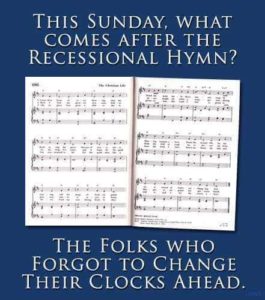 Tuesday, March 12
Tuesday, March 12
9:30 a.m. – Anna Circle – Aase Haugen, all contribute
1:00 p.m. Worship and Music Committee
4:45 p.m. – Education Committee
Wednesday, March 13
10:30 a.m. – Communion at Aase Haugen
2:00 p.m. – Miriam Circle – LaVerne Ramsey hosts
5:30 p.m. – Lenten Worship Service
6:00 p.m. – Soup Supper
7:00 p.m. – Choir rehearsal
8:00 p.m. – Band rehearsal
Thursday, March 14
10:00 a.m. – Bible Study with Pastor Amy
11:00 a.m. – Stewardship Committee
12 noon – Centering Prayer
1:30 p.m. – Property & Management Committee
5:00 p.m. – Community Meal at St Benedicts
Sunday, March 17 – Second Sunday of Lent
9:30 a.m. – Worship with Holy Communion – 11a.m. Broadcast
10:30 a.m. – Fellowship Hour
10:50 a.m. – Sunday School/Youth Forum
11:00 a.m. – Adult Forum: “Tolerating Intolerance: Responses to Religious Pluralism” – Victoria Christman
3:00 p.m. – Pew to Pulpit – Pulpit Rock Brewing Company







